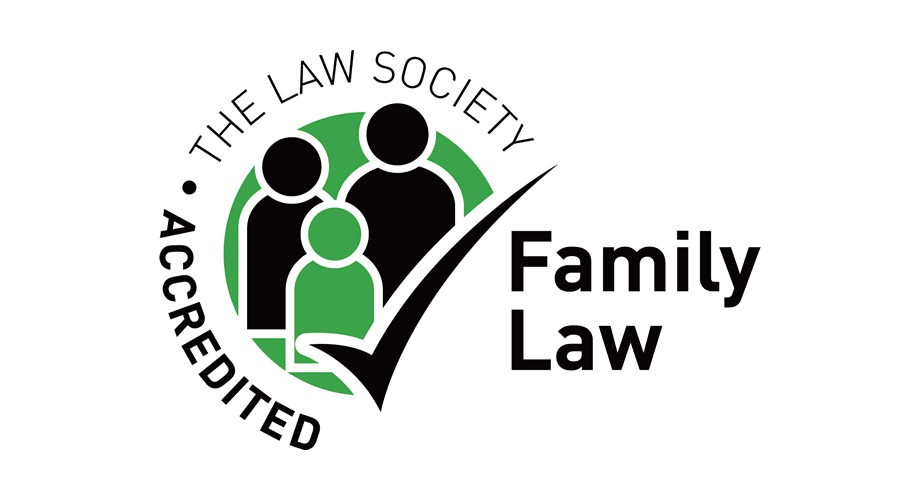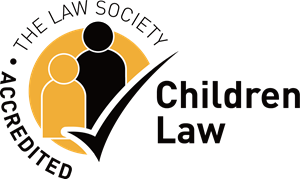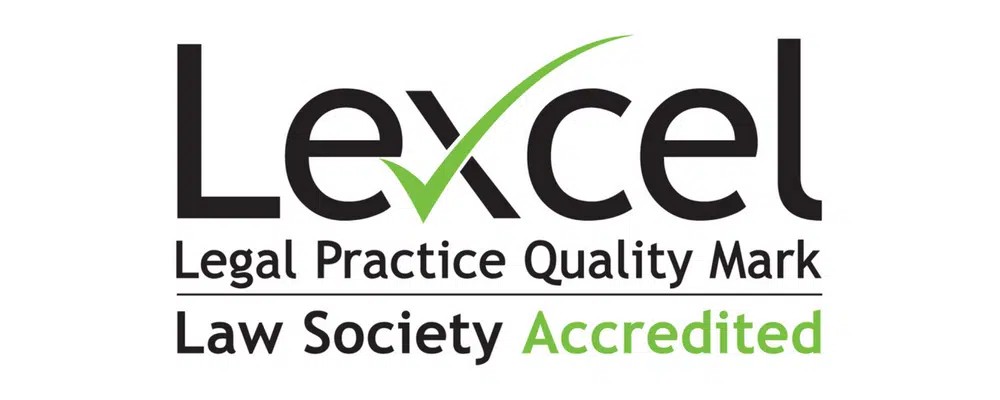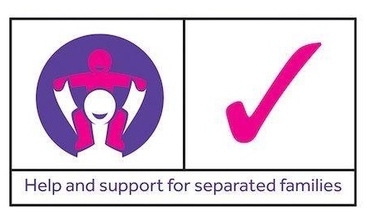Care Proceedings
Care Proceedings

Care proceedings can be a particularly stressful time for families. At Curling Moore Solicitors & Advocates we have extensive experience representing parents and wider family members who may be involved in the care of the children.
If the Local Authority are worried about a Child’s welfare, they can start “Care Proceedings”. Before taking this action, the Local Authority will try where possible to keep children with their parents (or those with parental responsibility).
If you have been invited to attend a meeting with the Local Authority about the care of your child, or notified that you must attend court, it is vital that you contact us immediately to obtain legal advice and arrange representation. The sooner you call us, the sooner we can offer you the advice and representation you need.
We offer representation to mothers, would be mother, parents, grandparents, and children. We are Children Panel Accredited lawyers which means we are specialists in court proceedings where social services are involved, and we are recognised as experts in our field.
Our Child Care Solicitors represent Guardians and children in care proceedings.
Care proceedings can be a particularly upsetting and unsettling time for children who may feel that their voices are not being heard by the adults involved. CAFCASS Guardians perform a very important role ensuring that the children’s interests are represented independently from their parents and are in the forefront of the court’s mind when plans are being made for their future. The Guardian makes recommendations to the court setting out what they feel is in the child’s interests at all stages of court proceedings.
We can represent Parents, Guardians and Family Members
We specialise in advising and representing parents, children (either directly or through their court-appointed Guardian) and other family members in all aspects of child protection work. If social workers are worried about a child’s welfare it is important to get expert legal advice as early as possible to help you understand the issues, procedures and to decide how best to deal with the situation, both before and during court proceedings.
If child protection proceedings (known as Care Proceedings) are already underway, you may need to act quickly, and our accredited specialist lawyers can offer urgent advice and take urgent steps where needed.
Our Solicitor’s Expertise
We work with all kinds of families and on all sorts of cases including:
- Where there are allegations of physical, sexual, or emotional abuse.
- Complex medical cases (including allegations of physical injury such as shaken baby syndrome and cases where the effects of undiagnosed medical conditions might be confused with signs of abuse).
- Where parents have learning disabilities, mental health problems or addiction to alcohol or drugs.
- Where parents are alleged to have neglected their children.
- Where children have disabilities or psychiatric illness.
Options Available
We have extensive experience and can advise parents, children, and other family members on all aspects of child protection including:
- Care Orders and Emergency Protection Orders
- Supervision Orders
- Deprivation of Liberty and Secure Accommodation Orders
- Placement Orders
- The PLO processes
- Child protection conferences and reviews
- Child in Need and Child Protection Plans
- Where the child is about to be or has been taken into care
- When family members are caring for a child or wish to care for a child who is in care or is about to be taken into care
- When an adult is seeking contact with a child in care or wishes for a child to be returned to their care
- Where the child may be placed for adoption, or a child has been placed with prospective adopters who are applying for an Adoption Order.
If you are a parent involved in care proceedings, you will be entitled to free legal advice and representation. This is called Legal Aid and it may also be available to other family members. In certain circumstances where family members are not entitled to legal aid, the Local Authority may be willing to fund your legal advice.
Different types of Order/s
The main types of orders which the court may make if there are concerns about a child’s welfare are as follows.
Emergency Protection Order
If the Local Authority is concerned that a child’s welfare has been compromised and that the child may be at immediate risk of harm, they can initiate Emergency Protection Order (EPO). To obtain such an Order, the Local Authority has to prove that there is reasonable cause to believe that the child is likely to suffer significant harm if he/she is not removed to accommodation provided by and on behalf of the Local Authority or does remain where he/she is. It may also apply for an EPO on the grounds that the local authority is conducting an enquiry and it is being frustrated by parents or caregiver e.g., access to the child is being unreasonably refused.
Supervision Order
This order means that a Local Authority must advise, assist, and befriend a child. A Supervision Order does not grant the Local Authority parental responsibility. The Local Authority, under a Supervision Order, must offer support and advice to families on how they can address the concerns social services may have about a child.
Care Order
The effect of a Care Order is that the Local Authority shares parental responsibility for a child(ren), and they can then make decisions about the care of the children, whether they are in foster care or in a children’s home. The Local Authority should continue to consult parents regarding the children’s education, religious upbringing, and medical treatment.
We can assist parents or family members who oppose the orders applied for by the Local Authority. Our experienced childcare lawyers can offer swift and effective advice to parents involved in these types of proceedings. We endeavour to provide a friendly and approachable service whilst offering a practical approach to ensure the best outcome for our clients. We understand that this is a difficult and traumatic time for parents and family members and that it is important to feel supported by your solicitor. These proceedings can be confusing and overwhelming. Here at Curling Moore Solicitors & Advocates we aim to provide clear and concise advice eliminating the legal jargon.
Special Guardianship Order
This order is required if somebody other than the parents are to take responsibility for a child until they reach the age of 18. With this order, a Special Guardian shares the parental responsibility with the parent but has the power to have the final say on all decision making for the child. Grandparents and other immediate family members usually apply for this order when children are not provided with sufficient care from their parents. The rules regarding this order are quite complex, so getting expert legal advice is an absolute must. Advice and assistance are available to all family members should they wish to be responsible for the care of the child as an alternative to being placed in foster care.

Let Us Assist !
Contact us now to discuss your reference
Call Us : 02075373553
Curling Moore Solicitors & Advocates represent several Local Authorities across London and other Local Authorities.
We are experienced in representing several Local Authorities in both inner London and surrounding boroughs as well as across Surrey and Kent in respect of public law proceedings. We can offer accurate advice regarding both pre proceedings procedures, preparing a case to be issued and following the issue of proceedings throughout the duration of proceedings. Our team of experienced lawyers are also able to advise on adoption, Special Guardianship, and all variety of public law orders. We undertake an advocacy service whereby we represent Local Authorities in the magistrates, county, and High Courts.
Our solicitors are members of the Law Society’s Children Panel
We can offer a wealth of experience acting for Children’s Guardians in care proceedings. We also act for children and young people who have separated from their Guardian and are able to instruct solicitors independently. Where appropriate, our solicitors will arrange to visit children to discuss their views and explain the reasons why the court have been involved in arrangements for their care in an age-appropriate manner.
All our children’s solicitors are skilled advocates and will endeavour to ensure continuity of representation. In all our work we adopt a child centred view and try to ensure the best possible outcome for children and young people involved.
Our Child Care Solicitors are here to help.
Child Adoption
We can assist with all aspects of the adoption process, from placement to adoption order.
Parents
We specialise in advising parents, family members and children in all aspects of child protection work. Our Child Care Solicitors are here to help.
Child Abduction
Parental child abduction takes place when a child is taken from the country, they live in by one parent without the consent of the other parent. An abduction can also happen if a parent takes a child abroad for an agreed holiday but then refuses to return them at the end of the agreed period.

Children & Family Law Expert
Chris Aniche
Chris is one of the expert children's and family law solicitors at Curling Moore Solicitors & Advocates who will handle your case. Chris is an exceptional expert in family and children's law. He is a Resolution Accredited Specialist in Public and Private Children, a Resolution Accredited Specialist in Domestic Violence, and a Law Society Children Panel Accredited Solicitor and a Family Law Accredited Solicitor. He is also a Supreme Court of Nigeria Barrister and Solicitor, a Solicitor-Advocate (Civil and Criminal Proceedings) in the UK, and a Master Advocate of the National Institute of Trial Advocacy in the USA.
Chris has over 20 years of legal experience, including over 16 years practising family and children's law. He has worked as a lawyer in childcare for many local governments across the country. As a result, he knows a lot about children's and family law.
Chris works honestly and constructively with parents to help them retain their children in their family home after the involvement of the local authority. He works relentlessly to ensure that children are reunited with their parents when it is safe to do so. Chris has a long history of getting the best results for his clients and using the best methods to get those results.
Area of Expertise
Chris taught advocacy and communication skills part-time at the University of Christchurch in Canterbury. He is presently pursuing a doctorate in children’s law at Coventry University. He is a DTM, Distinguished Toastmasters (the highest speaking and leadership award) in Toastmasters International and a former area director for Division K13. Chris is the presenter at Family Law Nugget, an online platform that teaches important aspects of family and children’s law. If you would like to speak with Chris about your case, please email him at Chris@CurlingMooreSolicitors.com or call him at 02075373553.
- Child Protection and Care Proceedings
- International Child Abduction
- International Adoption
- Cases involving child custody and visitation
- Nullity and Divorce
- Cases involving child custody and visitation
- Disputes over cohabitation
- Domestic Violence and Injunctions
- Asset Distribution During or Following Divorce
- Cases of Parental Alienation
Frequently Asked Questions !!
What is a Letter Before Proceedings Pre-Proceedings (Before Proceedings)?
The Letter Before Proceeding is the final notice given by the Local Authorities to the child’s parents detailing their concerns and worries over the child’s welfare. If you have received this letter in the past, please, contact us immediately. It is very expedient that you follow the instructions in the letter otherwise you may have to go to Court and your child could be taken into care.
Did the Local Authority Invite you to a meeting (Pre-Proceedings meeting)?
If you have received a letter titled pre-proceedings meeting with the local authority. This meeting will be attended by the parents, Children’s Services and their legal representatives. The Local Authority will present a “contract of expectations” which informs the parents what is expected of them in respect of their child in order to reduce the concerns the Local Authority has about the child or children in question.
Care proceedings are likely to be initiated if these changes are not made and the Local Authority continue to have concerns for a child’s safety.
Our experienced team will be able to talk you through the process, advise you of your rights, arrange for one of our team to attend at any meetings and to arrange for you to be represented at court.
Are you been taken to court by a Local Authority?
If the local authority is taking you to court, they would have to provide information to the court to explain why the Local Authority have concerns about your child. If you are regarded as a party to the proceeding, you will get copies of all the papers and reports given to the court, you have the right to be at court hearings and the opportunity to put your views across.
Information may be kept away from you if telling you could put another person at risk.
There are several possible outcomes at the end of Care Proceedings which could be decided by the court.
What would happen in Court?
Once all the information has been gathered, there will be a court hearing. The judge will look at the reports, and listen to everyone involved in the case, including:
- The child
- The parents
- Solicitors representing parents and children
- The council social worker
- The Children and Family Court Advisory and Support Service (Cafcass) officer
The child will go back home if the judge decides that they are safe. If not, the council will find them a new home. That may be with:
- Other members of their family
- Friends
- Anew family
- A children’s home
- A foster carer
What is CAFCASS and what do they do?
During Care Proceedings, CAFCASS provides a guardian for a child. The work of the guardian is to monitor the child, interact with them, and represent the interests of the child. They spend time getting to know the child and their family before the hearing. They offer the child every support service he/she may need.
The Children’s Guardian:
- Appoints a solicitor for the child
- Advises the court about what needs to be done before it can make a decision.
- Tells the court what they think would be best for the child – including the child’s wishes and feelings.
The Children’s Guardian will usually spend time with the child and their family. The Children’s Guardian will tell the court if they have not seen the child before they write their report. They may also talk to other people who know the family, like teachers, social workers, and health visitors. They may:
- Go to meetings about the child
- Check records and read the council’s case file
- Recommend to the court that other independent professionals help the court with advice, e.g., a doctor or psychologist.
- Cafcass workers are independent – they do not work for the council or the court.
What is Parental Child Abduction?
Parental child abduction takes place when a child is taken from the country, they live in by one parent without the consent of the other parent. An abduction can also happen if a parent takes a child abroad for an agreed holiday but then refuses to return them at the end of the agreed period.
What can I do if I am concerned about possible child abduction?
If you consider that your child is at risk of abduction, urgent steps can be taken to apply to the Court for a Prohibited Steps Order to prevent their other parent from removing them from the country.
After an abduction has occurred, it is vital that urgent steps are taken to secure the child’s return. International law can be complex, and it is important that specialist advice is taken. We are members of the International Child Abduction and Contact Unit’s panel of child abduction lawyers and can advise you on the best way to locate a child who has been brought to the UK or taken abroad.
How does the Court decide applications for a child to be returned to their home country?
The Court will need to decide whether the child is “habitually resident” in the country from which they have been taken. A person’s habitual residence is the place in which they are settled and have family and social connections. The Court will then also have to consider whether the other parent gave consent for the child to be taken out of the country or has since behaved in a way which would make the other parent believe that they agree to the child remaining out of the country.
If the Court is satisfied that the child is habitually resident in the country from which they have been taken and that the other parent did not agree to them being removed, then it should order that the child is returned.
Are there any defences to an application for a child to be returned?
Even if the Court is satisfied that the child is habitually resident in the other country and was removed without the consent of the other parent, it can refuse to return the child if one of the defences set out in the Hague Convention are established. These can be summarised as:
- That the child would be at grave risk of harm if they return to their home country.
- That the child objects to returning to their home country.
- That the child has settled in their new environment.
- That the other parent was not exercising their rights of custody for the child at the time of the removal.
For further information or to arrange an appointment, please contact Chris Aniche in the Family Law Team on 020 75373553.








